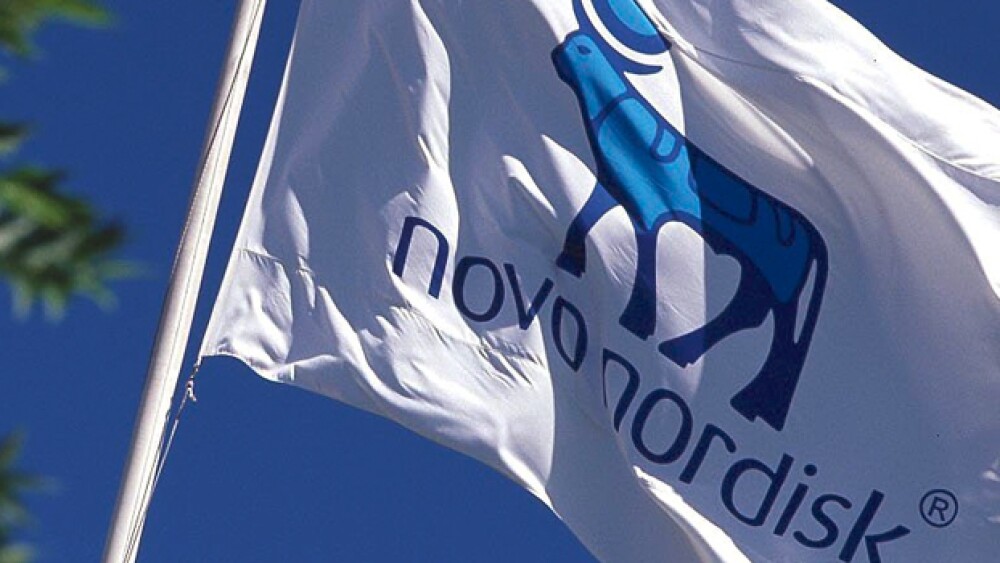Following an FDA warning in May, Novo Nordisk has filed several lawsuits against spas, clinics and pharmacies selling compounded version of semaglutide.
Pictured: Novo Nordisk flag hangs from a pole/iStock
Tuesday, Novo Nordisk filed several lawsuits against medical spas, wellness and weight loss clinics and pharmacies for allegedly advertising and selling products containing semaglutide, the active ingredient in its diabetes drugs Ozempic and Rybelsus, as well as weight loss injection Wegovy.
The news follows an FDA announcement late last month cautioning consumers that some pharmacies are selling compounded forms of semaglutide, which have unverified efficacies and could have potentially harmful side effects.
Compounded products refer to medicines that have been altered or have had other ingredients mixed in, which in turn could affect their safety, quality and efficacy, according to the FDA. While some patients with specific and special needs can benefit from this practice, compounded drugs have not gone through the FDA’s regulatory process and could carry unexpected risks and toxicities.
In particular, some retailers are selling salt forms of semaglutide, including semaglutide sodium and semaglutide acetate. These salts are not only different from the base form of semagultide used in approved products, but have also not been established as safe and effective.
“These unlawful marketing and sales practices, including the use of Novo Nordisk trademarks in connection with these practices, have created a high risk of consumer confusion and deception as well as potential safety concerns,” according to Novo’s press release announcing the lawsuits.
Selling semaglutide-containing products also violates Novo’s trade protections for the drug “and will not be tolerated,” according to the company. There are currently no FDA-approved generic versions of semaglutide.
Semaglutide mimics the GLP-1 hormone to activate the GLP-1 receptor, in turn helping the pancreas produce the adequate amount of insulin in response to high blood sugar levels. Semaglutide can also temper liver’s glucose production as well as the release of glucagon, leading to overall lower concentrations of fasting and postprandial glucose.
Novo first won an approval for semaglutide in September 2019 for Rybelsus, the first oral formulation of the drug authorized for use. Semaglutide picked up another regulatory nod in January 2020 to reduce the risk of major adverse cardiovascular events in type 2 diabetes, winning it the brand name Ozempic. The drug was also approved in June 2021 as a weight-loss injection, marketed as Wegovy.
In late 2021, following manufacturing issues, Novo announced that its Wegovy supply would not be able to keep up with U.S. demand in the first half of 2022. The company encountered production issues anew in August 2022, which forced it to cut back on the supply of the 1-mg dose of the drug.
In a press event Tuesday, Novo also announced that Wegovy’s European launch would be delayed due to these supply issues, Fierce Pharma reported. The company has not committed to a new launch date for Europe.
Tristan Manalac is an independent science writer based in metro Manila, Philippines. He can be reached at tristan@tristanmanalac.com or tristan.manalac@biospace.com.






